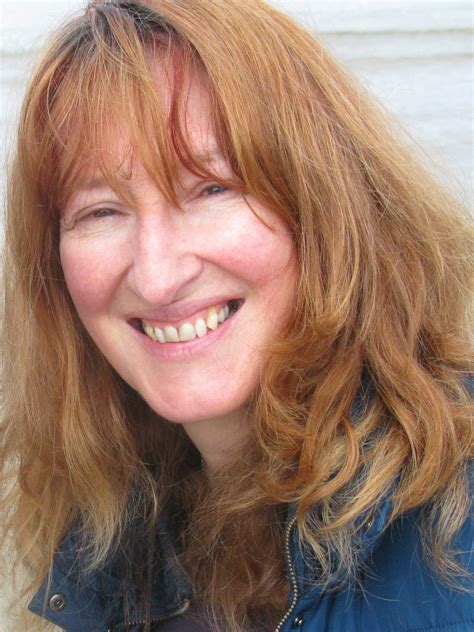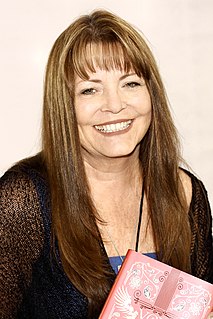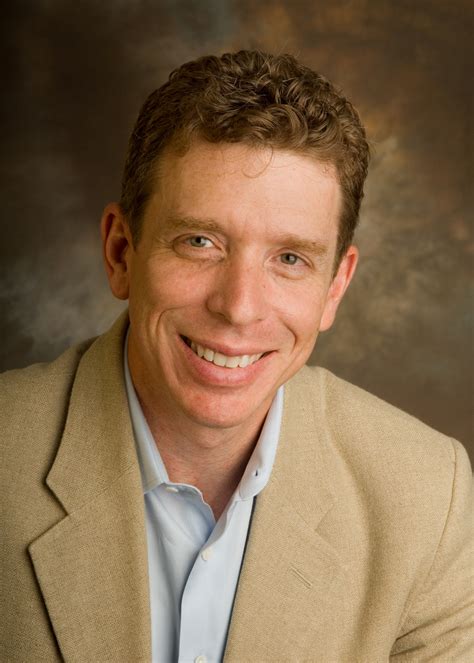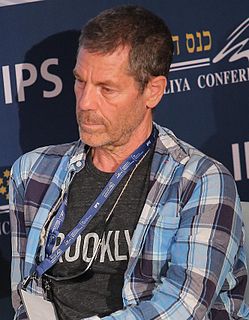A Quote by Amy Hardie
I try to see what the dream might be referring to - because the information in the world is being interpreted by my brain which only has the concepts derived from our five senses. So I think of the sequences in my dream as my brain doing its very best to process information in a way it knows I can deal with.
Related Quotes
A meme (rhymes with dream) is a unit of information (a catchphrase, a concept, a tune, a notion of fashion, philosophy or politics) that leaps from brain to brain. Memes compete with one another for replication, and are passed down through a population much the same way genes pass through a species. Potent memes can change minds, alter behavior, catalyze collective mindshifts and transform cultures. Which is why meme warfare has become the geopolitical battle of our information age. Whoever has the memes has the power.
We are not born with effective vision. The human infant has to learn how to see. The eyes gather information, they transmit it to the brain, but the brain doesn't know how to process it yet. We learn how to see in a way that's very similar to the way we learn how to speak. It takes a couple of years.
The information. Every bit that of information that was ever in your brain. But the information is not the mind Jenna. That we've never accomplished before. What we've done with you is groundbreaking. We cracked the code. The mind is an energy that the brain produces. Think of a glass ball twirling on your fingertip. If it falls, it shatters into a million pieces. All the parts of a ball are still there, but it will never twirl with that force on your fingertip again. The brain is the same way.
Because your brain uses information from the areas around the blind spot to make a reasonable guess about what the blind spot would see if only it weren't blind, and then your brain fills in the scene with this information. That's right, it invents things, creates things, makes stuff up! It doesn't consult you about this, doesn't seek your approval. It just makes its best guess about the nature of the missing information and proceeds to fill in the scene.
When confronted with information streaming from the eyes, the brain will interpret this information in the quickest and most efficient way possible. Time is energy. The longer the brain spends performing some calculation, the more energy it consumes. Considering the brain runs on about 40 watts of power (a lightbulb!), it doesn't have a lot of energy to spare.
[Aldous Huxley] compared the brain to a 'reducing valve'. In ordinary perception, the senses send an overwhelming flood of information to the brain, which the brain then filters down to a trickle it can manage for the purpose of survival in a highly competitive world. Man has become so rational, so utilitarian, that the trickle becomes most pale and thin. It is efficient, for mere survival, but it screens out the most wondrous part of man's potential experience without his even knowing it. We're shut off from our own world.
An important verity about knowledge is that the brain works most effectively with consciously retained information. We more easily remember what we want to recall later. When we feed our fourteen billion brain cells with information that will enrich us and help others, we are really learning to Think Big.
The brain "fills in" the missing information from the blind spot. Notice what you see in the location of the dot when it's in your blind spot. When the dot disappears, you do not perceive a hole of whiteness or blackness in its place; instead your brain invents a patch of the background pattern. Your brain, with no information from that particular spot in visual space, fills in with the patterns around it. You're not perceiving what's out there. You're perceiving whatever your brain tells you.
With five feeble senses we pretend to comprehend the boundlessly complex cosmos, yet other beings with wider, stronger, or different range of senses might not only see very differently the things we see, but might see and study whole worlds of matter, energy, and life which lie close at hand yet can never be detected with the senses we have.
So many people are struggling to create happiness while their brain is inundated by noise. If your brain is receiving too much information, it automatically thinks you're under threat and scans the world for the negative first. Because the brain is limited, whatever you attend to first becomes your reality.
































